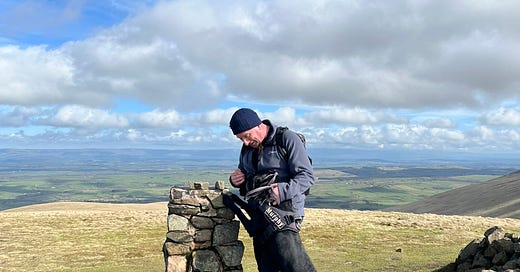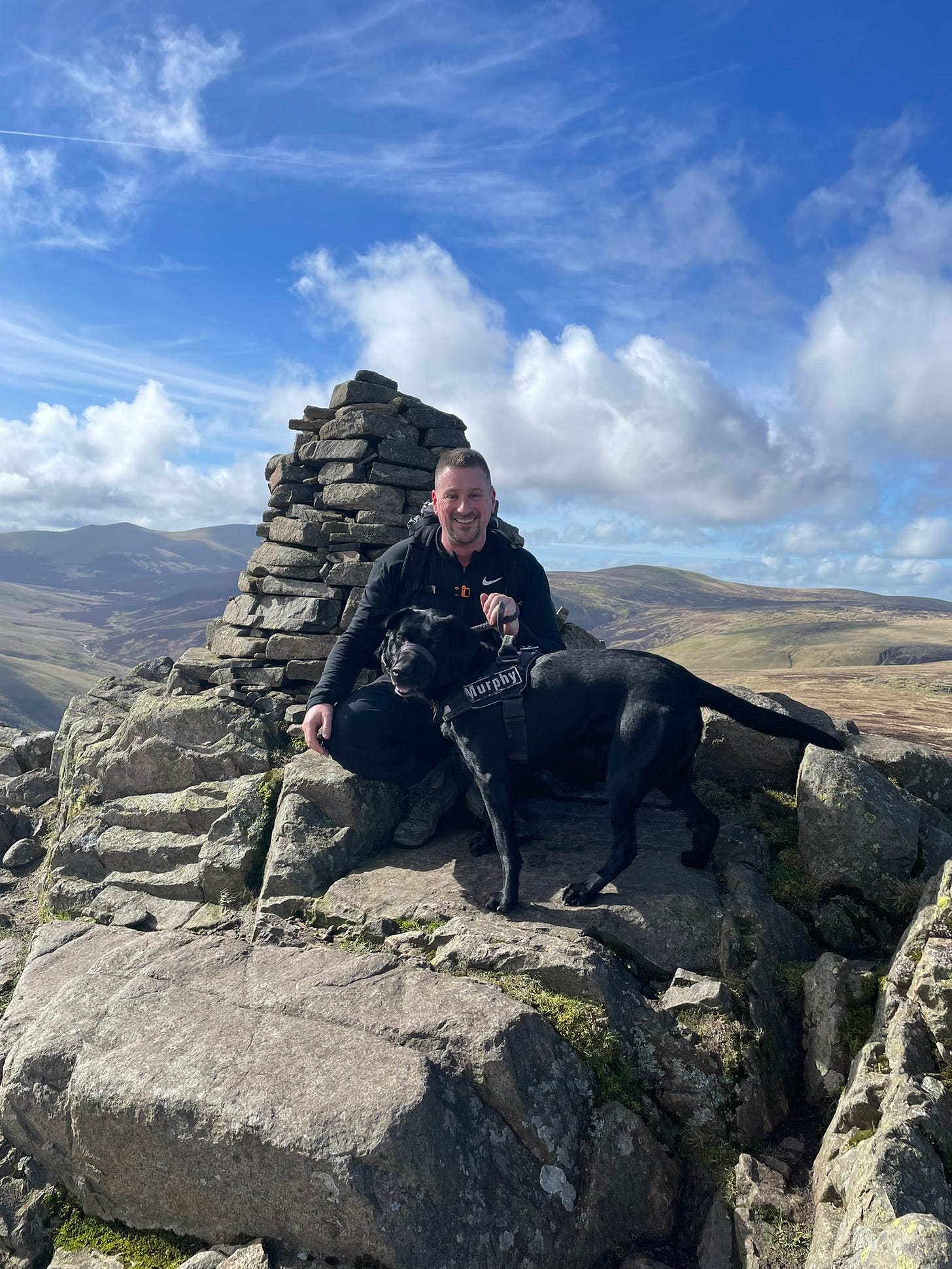Are you suffering from learned helplessness?
Three quick stories to help guide us into this idea of learned helplessness
One
When I was about three years old my one-year-old brother was crawling around on the floor. I had got used to him taking my mother’s attention since he was brought home, but I remained suitably suspicious of him.
One day, he lifted himself up against the sofa to stand for the first time. This was outside his normal behaviour so I did what any three-year-old would do… I whacked him across the head with a cast iron Tonka fire engine.
The result, apart from crashing to the floor with a spray of blood, was he didn’t attempt to stand up for another 12 months. His belief system shifted based on a single experience of my malevolence.
Two
I recently coached a client who, feeling stagnant and demotivated, repeatedly told me of her failure to progress at work. Although she respected and valued her line manager for being present and caring, when we explored the relationship, the manager took over and excessively controlled decisions thus protecting her from failing at any project.
Over time, my client had little room for creativity and doubted her ability to handle tasks independently. She was hesitant to propose new ideas and was essentially passive in her actions and ultimately her career. From an intentional place of support, the impact was restriction and underdevelopment.
Three
I used to complete lots of endurance events in the mountains. One day when talking to a colleague, she mentioned an event I’d completed and said how she couldn’t begin to understand the long-suffering distances or ‘type 2’ fun involved.
She told me it was “impossible” for her to run a half marathon. Despite being very fit she had tried a few times in training and two events but had to stop both times with a mile or two to go.
She had an ingrained belief that this was unachievable, constantly scanning for signals for failure, not success. In the end, she just stopped running.
Learned helplessness, is a concept originating from the field of psychology, and refers to a condition wherein an individual feels unable to control or change a situation due to repeated exposure to uncontrollable events.
This phenomenon, first identified by Martin Seligman and his colleagues in the late 1960s, has since been extensively studied and analysed across various domains of human life. It intersects with philosophical considerations of human agency and autonomy, and it has profound implications for personal well-being, workplace dynamics, and developmental psychology.
At its best, it can be a restrictive element within your life experience. But at its worst, it can capture your autonomy and reduce your sense of agency, creating an over-reliance on others or stopping activity and progress altogether.
Psychological foundations
The concept of learned helplessness emerged from experiments with animals, particularly dogs, where Seligman and Steven Maier demonstrated that dogs subjected to inescapable shocks eventually failed to escape even when escape was possible. They generalised these findings to humans, showing that people exposed to uncontrollable stressors might become passive, experiencing a diminished ability to act even in situations where they can effect change.
This phenomenon is linked to cognitive processes, specifically attributional style. People who attribute failures to internal, stable, and global causes are more likely to experience learned helplessness.
In the 1970s, Lyn Yvonne Abramson, Seligman, and John Teasdale expanded the theory to incorporate these cognitive factors, suggesting that how individuals interpret their experiences significantly influences their likelihood of developing learned helplessness. Being aware of our attributional style and traits is hugely helpful in challenging our thinking.
Conditions that create learned helplessness
Learned helplessness typically occurs under specific conditions where individuals repeatedly experience situations where they perceive no control over outcomes.
The development involves four key components:
Uncontrollability of Events: The key aspect is the perception that one’s actions do not influence the outcomes of a situation.
It manifests in saying ‘I cannot do X’. Of course, the counterweight to this is also true. The success of many endurance athletes, for example, relies strongly on their focus on control and perception of control.
It could be due to external factors e.g. a demanding and unsupportive boss, an over-supportive parent who sets expectations too low, or their own internal factors (e.g., low self-esteem leading to self-sabotage).
Consistency and Predictability: If an individual encounters repeated instances over time of a lack of control where their efforts fail to produce desired results, they begin to internalise a belief that their actions are ineffectual.
Attributional Style: How individuals explain or attribute the causes of their failures plays a crucial role across three aspects - internal, stable and global. According to Abramson, Seligman, and Teasdale, internal attributions (believing the cause of failure lies within oneself), stable (believing the cause will persist over time), and global (believing the cause affects many aspects of life) are more likely to lead to learned helplessness.
For example, someone who attributes a failed project solely to their lack of talent (internal), believes they will always lack talent (stable), and thinks this will affect all their future projects (global) is more susceptible. This could be as something as small as a child being able to make a bed or a CEO working on a large international programme.
Individual Differences: Not everyone exposed to uncontrollable situations develops learned helplessness. Personality traits such as resilience, optimism, and self-efficacy can buffer against its development. Additionally, social support and external validation of effort can mitigate feelings of helplessness.
In the same scenario where one runner quits, another continues to cross the finish line.
As an example of overcoming this, I once competed in the ROC Mountain Marathon championship. Modesty aside, I had no right to be there. We had entered literally by mistake. The weather was the harsh Scottish spring (differentiated from winter only by the calendar designation!). It was a cold and wet day two. Every ounce of me wanted to give up. I felt nothing could be done other than quit.
My thinking was shutting down, I was being emotionally led. I was ready to abandon my responsibilities to my partner. But then... I stopped.
I guzzled the last two Mars bars and with deliberate intent initiated a conversation with my running mate remembering all the big events we had done and survived and placed this 'shit day out' into a better more realistic context.
The event was giving powerful feedback but we deliberately agreed to defer the learning until post-event... and cracked on!
Mechanisms of learned helplessness
So, what might the impacts be across thinking, feeling and actions?
Cognitive Processing (Thinking): Learned helplessness affects how individuals process information and make decisions. They may become less likely to perceive opportunities for change or improvement because they have internalized a belief that their efforts are futile.
Emotional Consequences (Feeling): Chronic exposure to uncontrollable situations can lead to negative emotions such as frustration, anxiety, and depression. These emotional states further reinforce the belief that nothing can be done to alter the situation.
Behavioural Effects (Action): Individuals experiencing learned helplessness may exhibit passive behaviours, such as giving up easily or avoiding challenges altogether. This can manifest as reduced motivation, diminished problem-solving efforts, and withdrawal from social interactions or responsibilities.
Read more from Stuart:
Are our best days behind us, or are they yet to come?
Mastering mental demands in endurance sport
How to overcome it?
So how might we start to explore these in ourselves and others and create solutions for learned helplessness? For me, it comes to two distinct but related areas.
Addressing learned helplessness involves fostering a sense of control and competence. Revisiting that axiom of control alongside holding what I term a “competence mindset”. This is not based on positive thinking voodoo, in fact quite the opposite, but on looking at evidence of competence. Real proof our ancient lizard brains can accept and replicate.
Cognitive-behavioural therapy or coaching is one effective approach, helping individuals reframe their negative thought patterns and recognize their ability to influence outcomes.
Interventions in the workplace might include providing employees with opportunities for skill development, recognising and rewarding effort, and creating an environment where feedback is more constructive and supportive.
Educational strategies for children should focus on encouraging a growth mindset, as proposed by writers such as Carol Dweck. By emphasizing effort over innate ability and celebrating incremental progress, educators can help students develop resilience and a belief in their capacity to overcome challenges.
We can use this approach with ourselves on an issue, whether in the workplace or personal challenge. Spending time exploring the real evidence and celebrating incremental steps.
I remember when I trained for Ironman, keeping a training journal helped to look back on both control and competence. The day before the event when doubt was high and fight or flight responses were kicking in powerfully, I flicked through it and looked at the sheer volume of over a year of training.
Each bad weather ride, every rainy run where I felt unwell but finished complied a list of events that built up to it - real evidence of competence.
Learned helplessness is a complex phenomenon with significant implications for individual behaviour and well-being across various contexts.
Understanding its psychological underpinnings and philosophical dimensions allows for more effective interventions and support systems. By fostering environments that promote autonomy, competence, and positive reinforcement, it is possible to mitigate the debilitating effects of learned helplessness and enhance overall quality of life.
So, what areas will you now explore using the lens of learned helplessness?
And just to assure readers of all happy endings and our ability to “unlearn”…
One
My brother walked happily (if a little delayed).
Two
My coaching client had a challenging conversation with her supportive boss and is now exploring creativity in projects and acting more independently.
Three
And my colleague who felt she couldn’t run a half marathon… I once took out on a “short training run” one evening, and we didn’t stop until we hit 13 miles.
Stuart Rimmer MBE is a mountain lover, educationalist, performance coach, strategy consultant and now 'very former' endurance athlete; living and working between London and Cumbria. He is the founder of innermountaincoach.com. you can buy his latest books here.








